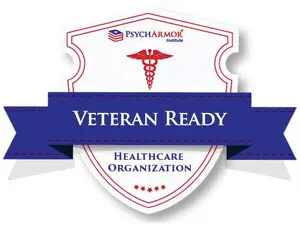New Study Explores Relapse Dreams in Recovery
 Have you ever had a dream that you drank or used again and became overcome with fear, guilt and remorse? And then, thankfully, you woke up. If so, you’re not alone. In fact, vivid relapse dreams are pretty common for people in recovery – and even more common if you have a severe clinical history of alcohol and other drug problems, according to a new study.
Have you ever had a dream that you drank or used again and became overcome with fear, guilt and remorse? And then, thankfully, you woke up. If so, you’re not alone. In fact, vivid relapse dreams are pretty common for people in recovery – and even more common if you have a severe clinical history of alcohol and other drug problems, according to a new study.
Researchers from the Massachusetts General Hospital (MGH) Recovery Research Institute studied a group of more than 2,000 people who had recovered from an alcohol or drug use problem. Roughly one-third reported having experienced relapse dreams after entering recovery and the frequency of these dreams decreased the longer an individual was in recovery. And this is true whether you’re recovering from alcohol, heroin, opioid, cocaine or cannabis abuse.
“We found that the individuals in recovery who reported at least one such dream had received help from treatment and mutual-help organizations in the past, reflecting a more serious clinical disorder and impact on the central nervous system,” lead author John F. Kelly, PhD, founder and director of the Recovery Research Institute, told Science Daily.
Still, more needs to be studied about the prevalence of such dreams, their relation to relapse risk, and how they decay with time in recovery, noted Kelly. He says this information could help treatment providers and families know what to expect going forward.
So what’s the link between dreams and length of time in recovery? According to Kelly, as the body and mind gradually adapt to abstinence and a new lifestyle, psychological angst about relapse diminishes. “REM sleep and deep wave sleep undergo important changes, even long after people enter recovery, and these relapse dreams may be indicative of the healing process and brain-mind stabilization that occurs with time in recovery,” he explained.
Dealing with Relapse Dreams
Waking up from a relapse dream can leave you with a host of emotions and feelings to handle. Here are a few ways to better cope:
Write it down. Once you awake from your dream, take some time to detail your dream and how it made you feel. For example, are you disgusted by the behavior in your dream? Did it make you want to use again?
Talk to someone you trust. Talking to someone else about your dream will also help you sort out any feelings. Talk to your sponsor, counselor, close friend or family member.
Look for triggers. Use your dream to identify any triggers that could have reminded you of your using days. For instance, did you bump into an old friend or hear a song that made you nostalgic?
Refine your relapse prevention plan. Since drug dreams are a sign of your unconscious mind thinking about using again, you can’t be too careful. Review your relapse prevention plan to make sure you have everything you need to stay strong and sober.
Preventing Relapse at Seabrook
We know that a relapse prevention plan is a critical part of maintaining sobriety. We’re here to support you every step of the journey. To learn more about our addiction treatment, call: (888) 223-0298.



